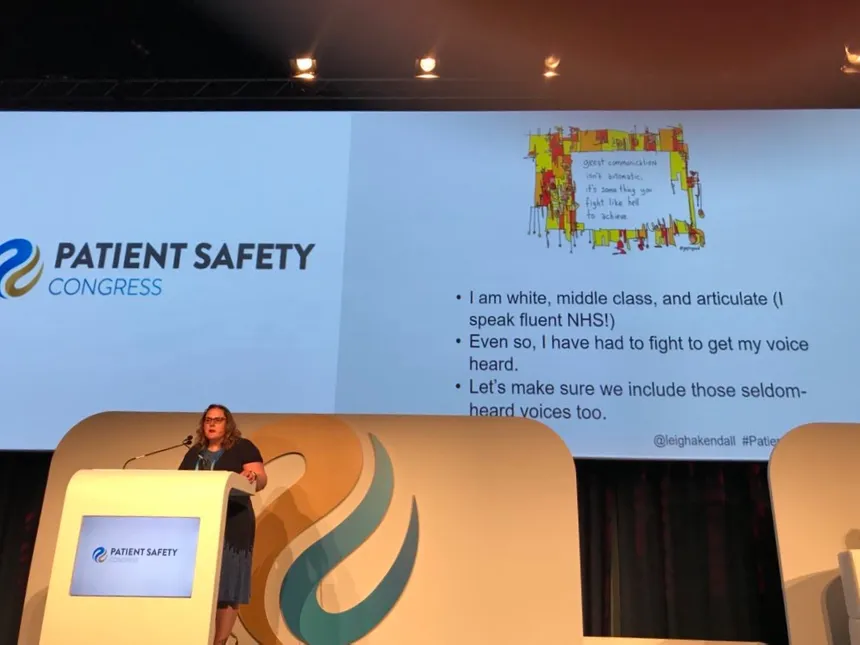Without Clear, Open, Honest, Inclusive Communication Greatness Doesn’t Happen

Originally published by Leigh Kendall – 11th July 2018
Irecently had the privilege of speaking at the prestigious national conference, the Health Service Journal Patient Safety Congress. The invitation to present relates to the campaigning I have been leading about improving communication in health services. For the past four years in my son Hugo’s memory, I have been striving to raise awareness of the importance of effective communication between patients and staff in order to improve safety and experience, as well as for better provision of services to support bereaved parents.
The title of my presentation was why a culture of collaboration, openness, and transparency is vital for a successful maternity service and the importance of teamwork between families and health care professionals.
I spoke about how while dedicated staff saved my life from a rare, life-threatening pregnancy complication, and gave Hugo the best chance of life, poor communication on many occasions made difficult situations much worse.

An example of this is the dismissive response to the complaint I made about staff in adult in intensive care who refused to make arrangements for me to see my dangerously-ill son in neonatal intensive care (NICU). I asked for a face-to-face meeting with senior staff on the ward concerned and explained to them the impact of their actions. In essence, the intensive care staff did not understand the needs of a new mother: it transpired that while other women had experienced similar difficulties, no one had given them feedback about it before. As a result of the conversation, there is now better awareness of the needs of other new mothers, and better communication between that ward and NICU.
During my presentation, I shared other examples of fighting to get my voice heard: with death being a taboo topic, many prefer to avoid the topic for fear of causing offence, or saying the ‘wrong thing’. A particular example is the exclusion of bereaved parents from the neonatal and maternity CQC surveys because it has been on the too difficult pile. This is unacceptable because of the loss of valuable intelligence about how to improve services, and save lives. I presented a paper about this to the All Party Parliamentary Group for Baby Loss at the House of Commons last year. Thankfully, attitudes are now changing: the CQC is looking at ways to seek the views of bereaved parents, and the National Bereavement Care Pathway is doing a fantastic job helping health professionals support families after the loss of a baby.
My background has helped me with my campaigning immeasurably: I have worked as an NHS Communications professional for a number of years (in a hospital, public health, and commissioning prior to NHS Horizons). As such, I understand how ‘the system’ works, and I speak fluent NHS. In addition, I am white, middle-class and articulate.
Even so, I have had to fight to get my voice heard. We need to ensure the voices of those in seldom-heard groups are heard, too. Seldom-heard means those less able to advocate for themselves, for whatever reason.
We need to remember that without clear, open, honest, inclusive communication greatness doesn’t happen.
In the panel discussion after the session presentations, Shaun Lintern Patient Safety Senior Correspondent for the HSJ asked me what advice I would give to hospitals to involve families in investigations where things had gone wrong in maternity care. His research had revealed that disappointingly the majority of hospitals did not involve families, again missing so many learning opportunities to improve safety and experience.
My advice was to proactively engage with families. There is no one size fits all answer, but by showing patience, kindness, and compassion; through being honest and open families and health professionals can work together. Health professionals need to involve families in a way that is relevant to them – to ask what matters to them, truly listen to the answers, and act accordingly.
This is the way all voices can be heard, and patient safety and experience improved.

Great communication isn’t automatic, it’s something you fight like hell to achieve.
